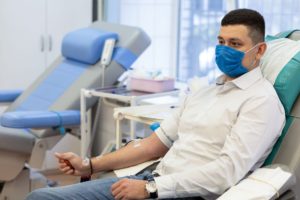COVID VACCINES and the RENAL Patient
Agnes A. Alarilla-Alba,MD

With the availability of the COVID Vaccines to the vulnerable, nephrologists face an onslaught of questions from our patients. Whether it is safe to vaccinate renal patients, its adverse event, whether it will be effective, and will there be interactions with the medications our patients are taking.
The COVID-19 pandemic has resulted in nearly 5.32 million deaths worldwide, with a total of 271 M confirmed cases ( as of Dec 12, 2021). It has acute affectations but has left many more people with long-term health problems, including poor kidney outcomes. In response, there is a global effort to develop effective vaccinations to reduce COVID-19 mortality. We all know that Vaccines against SARS-CoV-2 are one of the cornerstones of control to help end the COVID-19 pandemic. On the other hand, the vaccine’s success is not dependent only on the creation of an effective vaccine but its global availability and acceptance, as well as measures to protect the most vulnerable. Vaccines have proven time, and again that scientific advances are accelerated when there is a need for a rapid response with appropriate funding and resources.
Several COVID-19 vaccines have now been approved and their real-world efficacy is evidenced by the inverse relationship between vaccination coverage, and COVID-19 hospitalizations and mortality. However, in renal patients and other vulnerable population, the post-vaccination immune response is said to be impaired, resulting in insufficient protection leading to poor outcomes.
There are several aspects in patients with renal disease, the vulnerability of patients with kidney disease to SARS-CoV-2 infection, their high risk of impaired vaccine-induced immunity, and the effect of immunosuppressive agents on our transplant recipients or our renal patients with immunity-mediated kidney disease.
Additional issues are for patients receiving hemodialysis who use shared dialysis facilities. For example, are they at higher risk of SARS-CoV-2 infection and severe COVID-19 than the general population? Current vaccination approaches seem to be reasonably effective in patients on dialysis. Still, non-pharmacological measures to prevent diseases, such as hand hygiene, adequate ventilation in dialysis units, and the use of face masks and face shields, remain essential.
For patients with low antibody responses to the standard two doses of COVID-19 vaccine, whether because of treatment or disease-induced immunosuppression, personalized approaches to vaccination are recommended, including the monitoring of post-vaccine antibody levels as a correlate of protection ( though with no adequate studies equating antibody levels vs immunity protection) and the use of three primary and/or booster doses, where necessary. Currently more evidence supports the benefit of three vaccine doses in vulnerable individuals .
For non-immunocompromised, healthy individuals, data collected thus far indicate clearly that COVID-19 vaccines are highly protective in the short term, but the duration of this immunity is still a continuous study. A preprint study suggests that protection against severe disease lasts at least 6 months in healthy individuals. While longitudinal data are being collected, a debate has ensued about the rollout of vaccine boosters given the vast inequities in global vaccine distribution.
Indeed, the unequal distribution and availability of COVID-19 vaccines worldwide threatens its success. Though we have a subset of patients that still needs to be reminded of the importance of the vaccines. Once affected with the illness ,we have to be vigilant about the long-term sequelae of the disease and the continuous utilization of rehabilitation medicine.
The pressure on our healthcare systems, its proper utilization of allotted funds, the acuteness of the delivery, and the protection of our healthcare workers in terms of monetary compensation and the provision of wellness breaks and opportunities to regain their perspectives is ideal.
The economic devastation caused by the illness and the efforts to limit the spread of infection continue to grow. Moreover, as demonstrated by the emergence of the OMICRON variant, the mantra ‘no one is safe until everyone is safe’ holds. Therefore, while global vaccine distribution remains problematic, the government should offer booster doses to vulnerable individuals or at high risk of exposure.
Vaccines remain our best defense against COVID-19 but more must be done to ensure that everyone benefits from their protection. So let the Christmas season spring hope into each and everyone’s hearts that we shall be saved from this pandemic. We continue to be vigilant to reclaim the lost freedom we once had.












